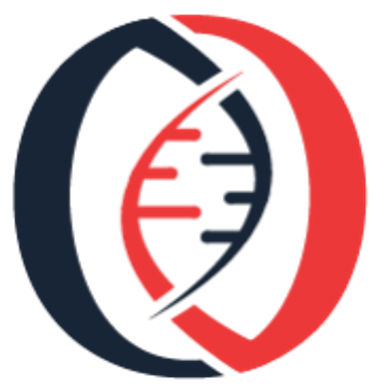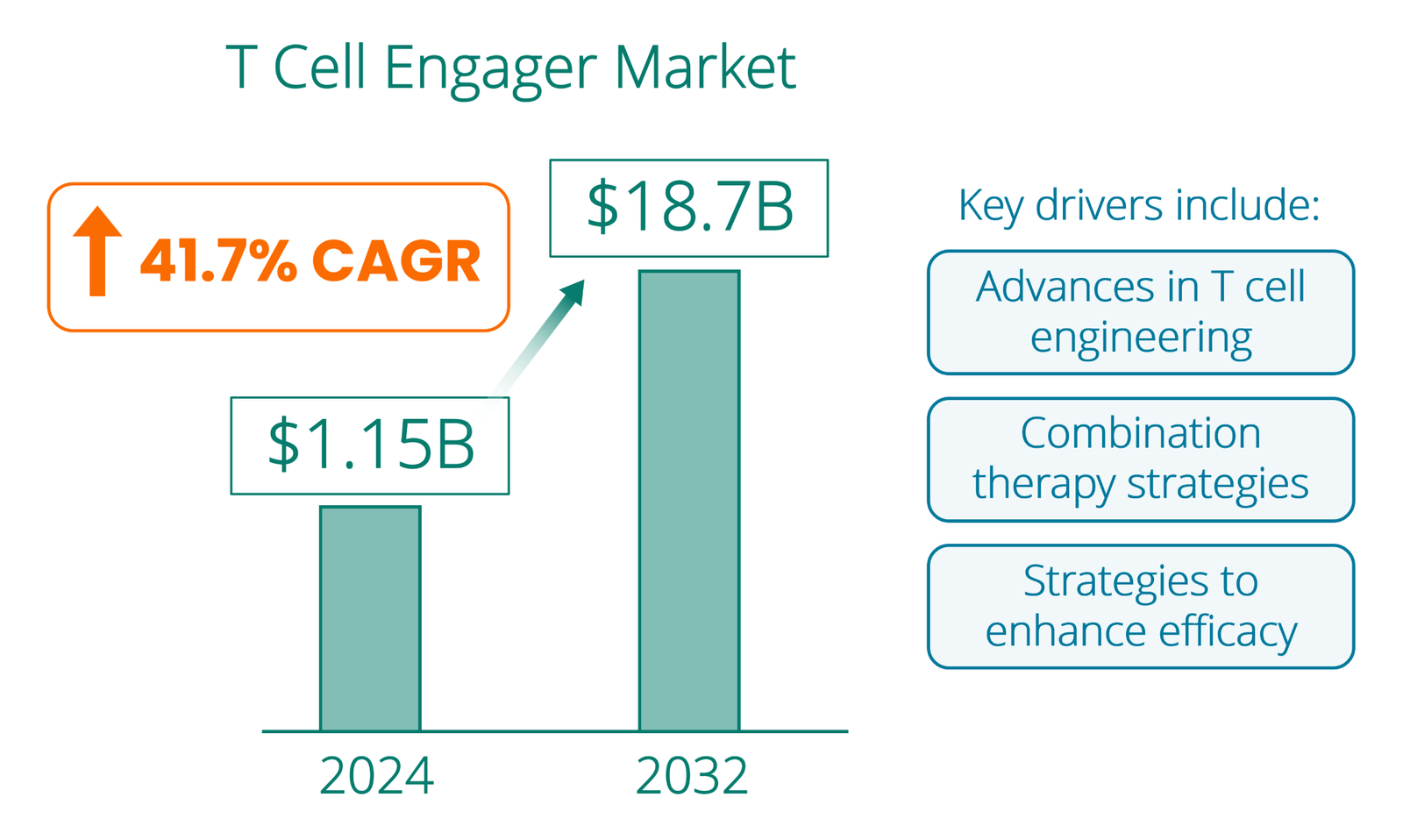
Encelta AG
Encelta AG is a swiss-based biotech developing a universal TCR-T cell platform designed to augment CD3-targeting T cell engagers.
SNAP Biosciences is developing a universal immune receptor platform, SNAP-CAR, that enables engineered T and NK cells to be directed by already existing antibody-based therapeutics.

Company Snapshot
The Challenge: Cell therapies have become too expensive, toxic, and difficult to develop. Patients deserve access, but too many barriers exist.
SNAP’s Approach: SNAP-CAR is a universal CAR receptor that enables already existing antibodies to be used as targeting molecules for cell therapies, offering a path to modular, programmable immune cell products.
Real-World Impact: The ability to repurpose already existing antibodies as targeting modules could accelerate clinical translation and expand access to cell-based therapies to a broad array of patients.
The Team: SNAP’s team has deep experience in advancing oncology-focused cell therapy programs from early development through clinical translation and regulatory engagement.
Lead Program: SNAP-NK: Allogeneic NK cells derived from donor peripheral blood and engineered to express SNAP-CAR receptor.
Current Status: With strong preclinical validation and a flexible platform design, SNAP is strategically evaluating indication selection and development partnerships to align its first-in-human programs with the greatest clinical and commercial impact.
Delivery Method: Intravenous infusion of engineered SNAP-CAR cells – similar to other CAR-based cell therapies – co-administered with modified antibodies.
Stage: Preclinical
Target Indication: Initial focus will be CD19/CD20+ B cell malignancies affecting over 75,000 patients annually in the U.S. alone.
Clinical Burden: Five-year survival rates for aggressive B cell malignancies range from 40–70%, with over 20,000 related deaths annually in the U.S.
Market Growth: A $3.5B+ global market opportunity for cell therapies across B cell malignancies, driven by increasing relapse rates and CAR-T adoption. Sources below.
Expansion Potential: The platform’s modular design enables rapid expansion into multiple indications and therapeutic areas beyond oncology, including autoimmunity and infectious diseases.
SNAP Biosciences, a subsidiary of Coeptis Therapeutics, is pioneering a new class of immune cell therapeutics with its universal SNAP-CAR platform. In an era increasingly dominated by antibody-based therapeutics, SNAP is developing the first immune receptor specifically designed to interface with the entire antibody infrastructure.
The SNAP-CAR technology enables FDA-approved and clinically validated antibodies to direct the activity of engineered T and NK cells – essentially transforming these familiar biologics into cell engagers, “in a snap”.
This modular approach promises to unify two of the most powerful modalities in oncology today – antibody-based therapeutics, and CAR-based cell therapies – while addressing some of their most persistent challenges: rigid targeting, uncontrolled toxicity, and costly redevelopment cycles.
Antibody-based therapeutics have become foundational in medicine, with hundreds of FDA-approved and clinically validated monoclonal antibodies used across a wide range of diseases. In parallel, the successes of CAR-T cell therapies and bispecific T cell engagers (TCEs) have demonstrated the power of using antibody-based targeting to redirect immune cells toward tumor antigens – but this typically requires the development of custom, indication-specific CAR constructs or antibody platforms.
Even when targeting well-known antigens like CD19, CD20, CD30, or BCMA, CARs and TCEs require the design, engineering, and validation of entirely new platforms, despite decades of clinical experience with conventional antibodies against those same targets.
SNAP-CAR flips this script on its head.
Rather than building a new targeting system from scratch for each antigen, SNAP-CAR is a universal immune receptor that allows engineered T and NK cells to be guided by the vast existing antibody infrastructure.
This is a simple but potentially powerful shift, repurposing what already works to unlock a more flexible, modular approach to cell therapy.
While the broader field races to build entirely new formats like T cell engagers or multi-specific CAR constructs to achieve immune redirection, SNAP-CAR appears to be asking a different question: Why not just use the antibodies we already trust?
How is this possible? Find out more below.
SNAP-CAR is a universal immune receptor system designed to integrate seamlessly with clinically validated monoclonal antibodies. Instead of relying on scFvs or custom-designed targeting domains, the SNAP-CAR receptor features a chemically reactive SNAP-tag on its extracellular domain, capable of forming a covalent bond with antibodies that have been modified with a benzylguanine (BG) moiety.
This enables a simple yet powerful mechanism:
Engineer T or NK cells to express the SNAP-CAR receptor.
Chemically modify existing antibodies (e.g., rituximab, trastuzumab) with BG.
Co-administer the BG-tagged antibody with SNAP-CAR cells.
Once infused, the antibody binds its antigen as usual, then forms a stable covalent bond with the SNAP-CAR receptor. This locks immune targeting onto the tumor cell and initiates cytotoxic activity, just like a conventional CAR-T or TCE would.
—
This simple but clever design grants SNAP-CAR with a number of desirable therapeutic qualities, including:
1. Modularity
SNAP-CAR enables an incredible amount of “flexibility”:
Target switching: New targets can be addressed simply by changing the antibody.
Dose tuning: Effector activity can be up- or down-regulated by controlling antibody dose.
Multi-targeting: Multiple antibodies can be administered simultaneously for multi-antigen coverage, without requiring new and complex receptor constructs.
2. Scalability & Versatility
SNAP-CAR supports broad patient accessibility by enabling a single, universal engineered cell bank to be redirected toward multiple diseases without ANY redesign. This means:
No need to re-engineer cells for each disease/target
Streamlines development and manufacturing from a shared cell bank
Expands therapeutic reach without increasing product complexity
3. Ensures Robust Immune Cell Activity
SNAP-CAR overcomes a major limitation of T cell engagers by ensuring that immune redirection is paired with a reliable population of potent effector cells…let me explain.
TCEs rely on the patient’s T cells – which might be compromised due to immunosuppression or damaged from prior rounds of treatment – whereas SNAP-CAR utilizes a fresh population of immunologically stimulated effector cells.
This ensures consistency from patient-to-patient and promotes proper antibody-mediated anti-cancer immune activity, regardless of the patient’s health or treatment history.
—
Now, there ARE other “universal CAR” platforms that promise similar benefits, but SNAP-CAR possesses a unique competitive edge. Learn more, below.
While other universal CAR systems exist – like those being developed by ARCELLX, AvenCell, and Umoja – that offer similar benefits, SNAP-CAR stands apart in two critical ways:
1. Antibody-Based Targeting:
Unlike other platforms that rely on custom-designed, antigen-specific adaptors, SNAP-CAR seamlessly integrates with existing monoclonal antibodies – many of which are FDA-approved and clinically validated. This dramatically lowers the barrier to expansion across new indications and leverages the high affinity and specificity of already-optimized antibody therapeutics.
2. Covalent Receptor Engagement:
SNAP-CAR receptors form a covalent bond with BG-tagged antibodies, in contrast to the non-covalent, affinity interactions used by other universal systems. This permanent linkage enhances mechanical stability at the immunological synapse, promoting more consistent receptor clustering, robust downstream signaling, and ultimately, stronger effector cell activation.
T cell engagers are absolutely exploding in oncology right now, and represent one of the hottest markets in healthcare. Due to AED T cells’ ability to interact with any TCE, Encelta would theoretically have access to the entire market.
According to Wise Guy Reports, the global bispecific T cell engager therapeutics market was valued at $0.81 billion in 2023 and is projected to grow to $18.7 billion by 2032, representing a remarkable compound annual growth rate (CAGR) of 41.78% from 2024 to 2032.

Overall, the TCE field is rapidly expanding, driven by things like advances in T cell engineering, combination therapy strategies, and strategies to enhance TCE efficacy. As TCEs become more sophisticated and broadly applied, Encelta’s AED T cells may become a highly sought after bolt-on addition to improve clinical activity.
Because SNAP-CAR leverages the vast existing infrastructure of monoclonal antibodies, its utility is not limited to oncology. Antibodies targeting viral, bacterial, and autoimmune-related antigens are already in widespread use or late-stage development, making it possible to apply the SNAP-CAR platform to diseases beyond cancer.
By decoupling cell engineering from disease targeting, SNAP-CAR enables a plug-and-play approach to programmable cell therapies across a wide range of therapeutic areas.
Similar Company Profiles

Encelta AG is a swiss-based biotech developing a universal TCR-T cell platform designed to augment CD3-targeting T cell engagers.

Founded:
2024
Location:

Wexford, PA
Stage:
Preclinical
Status:
Private
Funding to date:
N/A
Share profile:
Key Leadership
Key Publications

Published: 09 May 2023
Post-translational covalent assembly of CAR and synNotch receptors for programmable antigen targeting
*Featured on cover! Volume 8 Issue 12

Published: 19 March 2025
Conditional Control of Benzylguanine Reaction with the Self-Labeling SNAP-tag Protein
*Featured on cover! Volume 8 Issue 12
No recent media.
No recent news.
No job postings at this time.

A “universal immune receptor” is a modular surface receptor that, on its own, has no capacity for target recognition (left), but instead binds to targets via a “targeting molecule”. The targeting molecule is usually an antibody or some other kind of peptide that binds to both i) a target antigen, and ii) the extracellular domain of the receptor. This interaction engages the intracellular activating motifs on the universal receptor, activating the immune cell. The power of universal receptors lies in their modularity – by administering a different targeting molecule, the “antigen specificity” of the receptor is easily modified from specificity 1 (middle), to specificity 2 (right). Also, the immunological activity of the immune cells can be increased/decreased simply by altering the concentration of the targeting molecule.

Chairman, President & CEO | Coeptis, Inc.
Dave Mehalick is the Chairman, President, and CEO of Coeptis Therapeutics Holdings, Inc. (NASDAQ: COEP) as well as its subsidiary SNAP Biosciences. With over 30 years of executive experience across various industries, Mehalick has deep expertise in mergers and acquisitions, corporate finance, and product development. He co-founded Coeptis Therapeutics in October 2016, leveraging his background in financial services and investment banking.
Under his leadership, Coeptis has advanced innovative cell therapy platforms, including the SNAP-CAR technology, targeting cancer, autoimmune, and infectious diseases. Mehalick’s vision is to create more accessible and affordable universal cell therapies, potentially revolutionizing treatment paradigms in oncology and beyond.

Vice President of Operations | Coeptis, Inc.
Dan Yerace is the Vice President of Operations and a co-founder of Coeptis Inc., and has been with the company since its inception in September 2017. With over a decade of experience in the pharmaceutical industry, Yerace is a key strategist responsible for supply chain management, business development, portfolio management, and corporate strategy.
Prior to joining Coeptis, Yerace held several positions at Kadmon Pharmaceuticals, including Senior Director of Global Supply Chain and Commercial Business Development. His career also includes experience at United States Steel Corp as a Commodity Buyer.
Yerace holds a BSBA in Economics/Statistics from Slippery Rock University of Pennsylvania and an MBA from Waynesburg College.
Get early-stage company profiles, unlicensed tech briefs, and our analysis of rising trends in the industry delivered to your inbox.